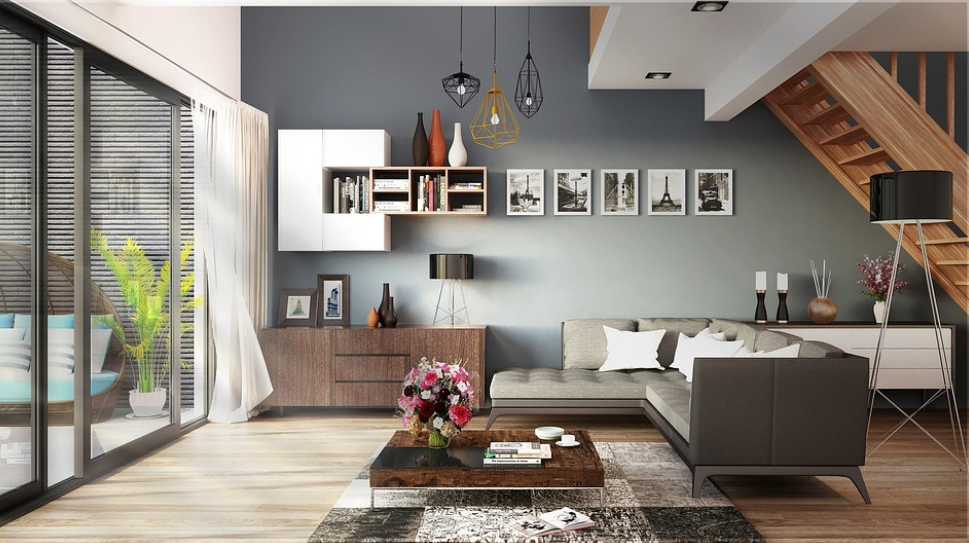In the world of interior design, the ability to mix patterns successfully is often seen as a hallmark of a true decor enthusiast. It’s a design choice that can instantly transform a space, infusing it with personality and pizzazz. If you’ve ever been intrigued by the idea of mixing patterns but felt hesitant about taking the plunge, this article is your comprehensive guide to mastering the art of pattern mixing.
Introduction
Pattern Mixing Defined
Pattern mixing in interior design refers to the practice of combining different patterns, such as stripes, florals, geometrics, and more, within a single space or decor scheme. This artful juxtaposition creates a visual tapestry that can be both exciting and harmonious.
The Boldness of Pattern Mixing
Pattern mixing isn’t for the faint of heart. It’s a bold choice that requires a keen eye, creativity, and a willingness to step outside your comfort zone. However, when executed thoughtfully, it can result in decor that is uniquely yours and truly captivating.
Understanding Patterns

Diverse Patterns, Diverse Effects
Before diving into the world of pattern mixing, it’s crucial to understand the various types of patterns and how they can impact a room. Stripes convey order, florals exude charm, and geometrics offer a modern edge. Each pattern type has its own psychological effect on our perceptions of a space.
Choosing a Dominant Pattern
Setting the Tone
A key principle in pattern mixing is selecting a dominant pattern that sets the tone for your decor. This pattern becomes the anchor that ties everything together, providing a sense of cohesion amid the diversity of other patterns.
Complementary Patterns

Balancing Act
While a dominant pattern sets the stage, complementary patterns are the supporting actors that enhance the overall appeal. The art lies in striking the right balance between boldness and subtlety in your pattern choices.
Color Considerations
Harmonizing with Hues
Colors play a vital role in pattern mixing. They can either amplify the impact of patterns or tone them down. Discover how to create harmony through a well-thought-out color palette that complements your chosen patterns.
Scale and Proportion
The Power of Scale
Understanding the scale of patterns is paramount to successful mixing. Learn how to maintain balance and prevent your decor from feeling overwhelming by considering the proportions of different patterns.
Texture and Material
Adding Depth and Interest
Texture and material choices can elevate your pattern game. Incorporating different textures and materials enhances the depth and visual interest of your decor.
Placement and Arrangement
Designing with Purpose
The arrangement of patterns in a room is an art in itself. Explore strategies for creating focal points, guiding the viewer’s eye, and establishing a visual flow that engages and captivates.
Accessorizing with Patterns

Layering with Accessories
Accessories like throw pillows, rugs, and curtains offer opportunities to experiment with patterns on a smaller scale. Discover how to use these elements to add layers of interest to your decor.
Case Studies
Real-Life Inspiration
We delve into real-life examples of successfully mixed patterns, breaking down key design elements and choices that contribute to their appeal.
Common Mistakes to Avoid
Learning from Mishaps
Even seasoned designers make mistakes when it comes to pattern mixing. Explore common pitfalls and the lessons they teach us about achieving harmony in decor.
Achieving Balance and Cohesion

The Ultimate Goal
This section offers valuable tips for achieving a balanced and cohesive look in your pattern-mixed decor, ensuring that your space feels harmonious rather than chaotic.
Personalizing Your Space
Infusing Personality
Discover how pattern mixing can be a form of self-expression, allowing you to reflect your personality and style in your home decor.
Practical Tips and Tricks
Getting Started
If you’re new to pattern mixing, fear not. This section provides practical advice and simple techniques for experimenting with patterns in your decor.



